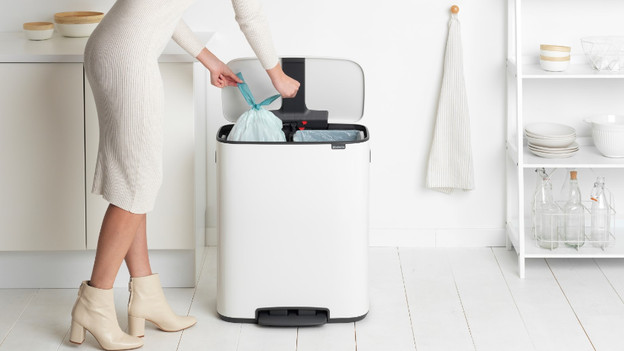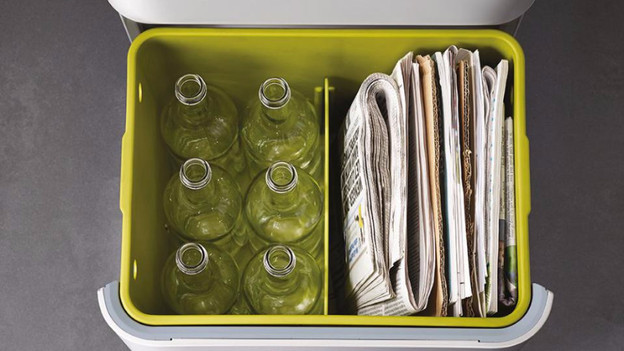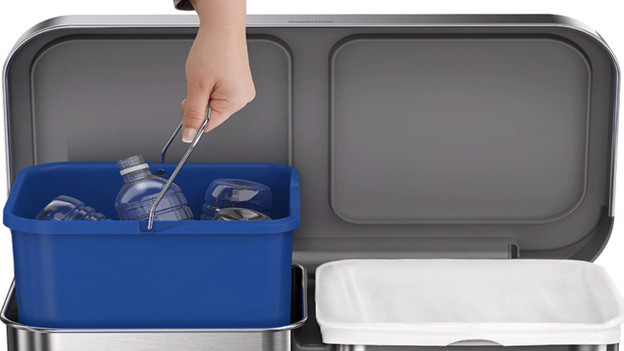
Written by Dorieke
Edited on
30 November 2022
·
08:10
How do you separate your trash?
By separating your trash, you can contribute to a more sustainable world. Separated trash is suitable for recycling. This saves resources and ensures less CO2 emission. In this article, we'll dive into the world of trash separation. We'll give you tips and share useful facts, so you can get the most out of separating your trash.

Get started with separating trash
You probably know separating trash is good for the environment. But did you also know it saves you money? In this article, you'll read 4 useful tips.
- Tip 1: distinguish 5 types of trash
- Tip 2: choose the right trash can
- Tip 3: avoid common mistakes
- Tip 4: save costs by separating more trash

Tip 1: distinguish 5 types of trash
You can separate trash in 5 different ways:
- Plastic, like plastic packaging, cans, and bottles.
- Vegetable, fruits, and garden waste (organic waste), like potato peels, banana peels, and weeds.
- Old paper, like boxes, letters, envelopes, and toilet rolls.
- Glass, like vegetable jars and wine bottles.
- General trash, like diapers, gum, and vacuum cleaner bags.

Tip 2: choose the right trash can
To choose the right trash can, you'll have to determine how many different types of trash you want to separate. How much trash do you collect per type? And think about your household and living situation. Are there trash cans outside and can you easily use these to throw out your trash? Choose a smaller trash can or one with fewer compartments than if you live in a flat. Besides trash cans with multiple compartments, there are separate compartments for organic waste on your counter, for example.

Tip 3: avoid common mistakes
The fact that a plastic bag should be thrown into the plastic trash can is clear, but some trash isn't as easy to categorize. For example, a wine glass or vase shouldn't be categorized as glass, but general trash. Just like a tea bag. Aluminum foil, drink cartons, and cans are categorized as plastic, but bags of chips and deodorant is general trash. A pizza box seems to be categorized as paper, but it should be thrown into the general trash. Same applies to a paper coffee cup.

Tip 4: save costs by separating more
General trash is the most expensive to process. In some districts, you pay per trash bag or container. In other districts, you'll pay trash tax. The district can't make profit on the tax, but just uses it to cover the expenses. The more trash you separate, the lower the trash processing costs of the district. This doesn't save you anything short term but the taxes will go down after a while and you'll have to pay less.
Article by Dorieke
Trash Can Expert.
